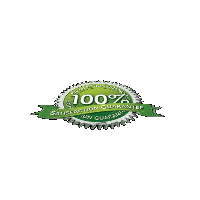Organic Chemistry Lab 1 – Experiment 18: Ethanol From Sucrose
Introduction
The purpose of Experiment 18 is to produce ethanol from sucrose through the process of fermentation. This experiment demonstrates the conversion of sugar into alcohol and carbon dioxide using yeast, a common biological catalyst. Understanding this process is fundamental to both organic chemistry and industrial applications in biofuel production.
1. Experiment Overview
Objective: To produce ethanol from sucrose using fermentation and to understand the underlying chemical and biological processes involved.
Questions:
- What are the primary objectives of producing ethanol from sucrose in this experiment?
- Why is fermentation an appropriate method for converting sucrose into ethanol?
2. Materials and Methods
Materials:
- Sucrose (table sugar)
- Yeast (Saccharomyces cerevisiae)
- Water
- Fermentation vessel
- Distillation apparatus
- pH indicator
Methods:
- Dissolve sucrose in water to prepare a sugar solution.
- Add yeast to the sugar solution to initiate fermentation.
- Allow the mixture to ferment over a period of time.
- Distill the fermented mixture to isolate ethanol.
- Test the final product for ethanol concentration using appropriate analytical methods.
Questions:
- What are the key materials required for this experiment and their roles?
- How does the process of fermentation convert sucrose into ethanol and carbon dioxide?
3. Chemical Reactions and Biological Processes
During fermentation, yeast converts sucrose into ethanol and carbon dioxide through the following reactions:
C12H22O11+H2O→C6H12O6+C6H12O6C_{12}H_{22}O_{11} + H_2O \rightarrow C_6H_{12}O_6 + C_6H_{12}O_6 (Sucrose hydrolysis)
C6H12O6→2C2H5OH+2CO2C_6H_{12}O_6 \rightarrow 2 C_2H_5OH + 2 CO_2 (Fermentation of glucose)
Questions:
- What are the chemical equations involved in the production of ethanol from sucrose?
- How do the biochemical processes in yeast facilitate the fermentation of sucrose?
4. Results and Discussion
After fermentation, the ethanol content is measured and compared with theoretical yields. The quality of ethanol and the efficiency of the fermentation process are assessed.
Questions:
- How do you measure the ethanol content in the final product?
- What factors might affect the yield and purity of ethanol produced from sucrose?
5. Conclusion
This experiment illustrates the conversion of sucrose into ethanol through fermentation. It highlights the practical applications of organic chemistry in producing biofuels and provides insights into the efficiency of the fermentation process.
Questions:
- What are the main conclusions drawn from the experiment on producing ethanol from sucrose?
- How can this experimental procedure be applied to industrial ethanol production?
You Need a Professional Writer To Work On Your Paper?

Have any Assignment?








